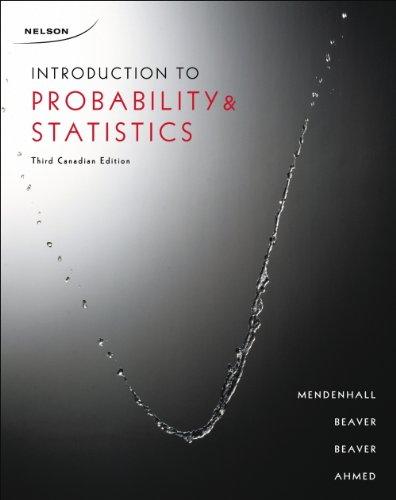In 2001, an 82-year-old man in Ontario claimed that a convenience store clerk defrauded him of $250,000
Question:
In 2001, an 82-year-old man in Ontario claimed that a convenience store clerk defrauded him of $250,000 by telling him that his ticket was not a winner and keeping it. The story received national attention in 2006 with a news story aired on the CBC. Analysis of Ontario Lottery Commission winning tickets indicated that 214 major lot- tery prizes had been won by clerks. A statistician computed that the expected number should have been 57. The following numbers are fictitious but indicate how such an analysis could be done. Suppose that there were 10,000 major lottery prizes of $25,000 or more during a 20-year period. Suppose that clerks who sell lottery tickets bought 0.57% of all tickets sold (i.e., 5.7 of every 1000 tickets sold). Then each of the 10,000 prizes can be viewed as a trial in a binomial experiment with n = 10,000 and p is the probability of a winning ticket being won by a clerk, so p = 0.0057. What is the prob- ability of having at least 214 clerks as prize winners?
Step by Step Answer:

Introduction To Probability And Statistics
ISBN: 9780176509804
3rd Edition
Authors: William Mendenhall






